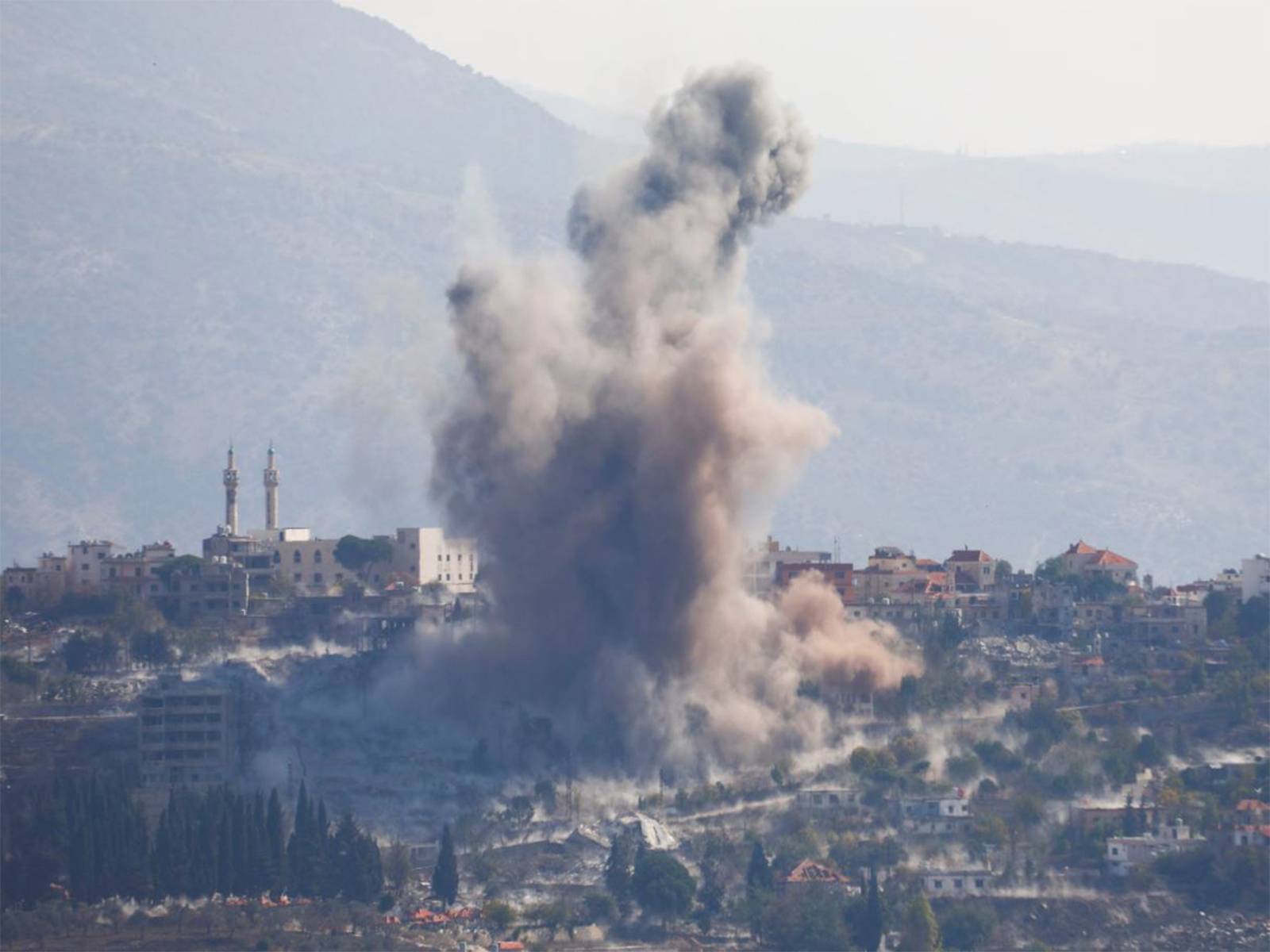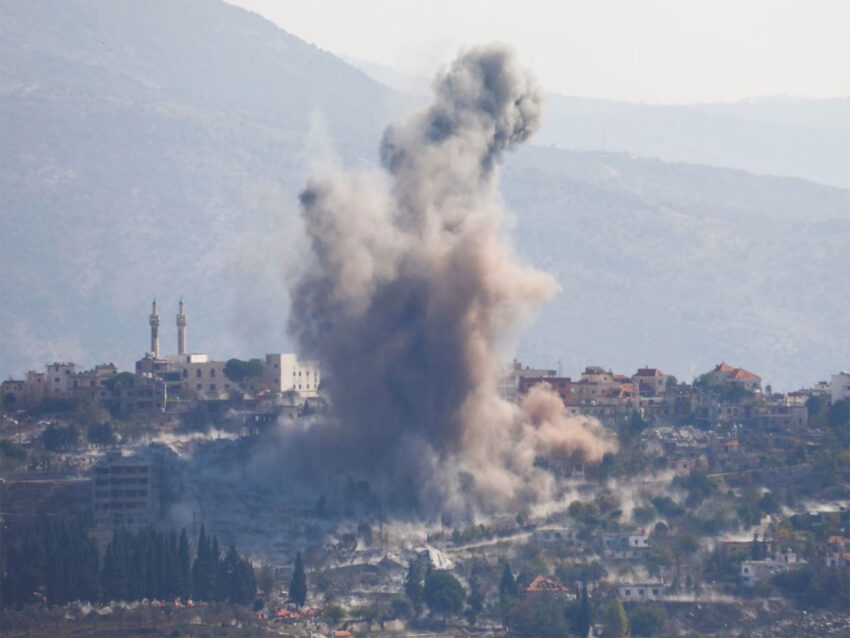
Tel Aviv [Israel], October 1 (ANI/TPS): Israeli authorities prevented what they described as a deliberate attempt by the Palestinian Authority (PA) to damage a major archaeological site in the Binyamin region. The operation, carried out on Monday, targeted PA engineering crews who were preparing large-scale infrastructure work at the Biblical city of Gibeon, a site of great historical and biblical significance.
According to the Israel Defence Forces and the Binyamin Regional Council, excavators and concrete materials intended for use at the site were seized in a coordinated effort with the “Guardians of Eternity” organisation, which first identified the activity. Officials said the attempted work included pouring concrete, clearing ancient terraces, and preparing asphalt surfaces–actions they said would have caused irreversible harm.
“This is infrastructure work using heavy mechanical tools in the heart of the site, near the most important elements of the mound,” explained Adi Shargai, director of activities for Guardians of Eternity, an Israeli organisation at the forefront of efforts to protect Jewish historical sites.
“Concrete pouring and clearing of terraces from the ancient stones of the site were identified. Piles of bedding ready for spreading and paving asphalt were scattered throughout the area, as well as mechanical tools such as a roller,” she said.
Shargai stressed the site’s vulnerability due to its location north of Jerusalem. Although it is in Area C, where Israel has both administrative and security jurisdiction, it lies adjacent to the Palestinian village of Al Jib.
“During the construction of the seam barrier around Jerusalem, the site was left outside the fence, which exacerbated the problem of accessibility and supervision,” Shargai said. “Today, access requires complex security coordination and escort. Seizing the tools is an important step, but ongoing activity and improving accessibility to the site are required to prevent future damage.”
The Biblical city of Gibeon is considered one of the region’s most significant archaeological treasures. Mentioned repeatedly in the Book of Joshua, it is where Joshua made a covenant with the Gibeonites and the site of the famed battle in which “the sun stood still at Gibeon, and the moon in the valley of Ayalon.”
Discoveries include a massive pool described in the Book of Samuel, elaborate winery cisterns known as the “Gibeon cisterns,” and an underground water system still connected to a functioning spring. Excavations conducted by James Pritchard in 1956 uncovered pottery handles inscribed with the name “Given,” confirming the site’s biblical identity. Scholars believe the city was continuously inhabited since the Early Bronze Age.
Historically, Gibeon was described as “the great city of Gibeon, one of the cities of the kingdom,” serving as one of the 13 priestly cities in the territory of the tribe of Benjamin. It was home to King Saul’s family and played a central role in his kingdom’s fate.
‘Reality Hits Us in the Face’
The head of the Binyamin Regional Council, Yisrael Gantz, accused the PA of deliberately targeting Jewish history. “While the plan in question to end the war states that the Palestinian Authority must undergo ‘reforms’ so that it can accept responsibility for Gaza, reality comes and hits us in the face,” Gantz said.
“The same authority proves once again that nothing will really change, and is in fact responsible for another nationalist heritage attack aimed at erasing a biblical site. We will continue to fight with all our might to dismantle the Palestinian Authority and to impose Israeli sovereignty over all of Judea and Samaria, including these important heritage sites that prove above all our exclusive right to the land of our ancestors.”
Officials said they intend to continue monitoring the site and to expand protective measures, warning that its remote location makes it an ongoing target for damage.
Responsibility for securing Judea and Samaria’s archaeological sites lies with the Civil Administration’s Archaeology Staff Officer. However, lawmaker Amit Halevy has proposed extending the Israeli Antiquities Authority’s jurisdiction to Judea and Samaria. Proponents argue that the Civil Administration is not equipped to deal with the challenges of preserving and excavating sites. Critics warn that such a move may get all Israeli archaeology banned from international cooperation.
The Press Service of Israel reported in April that Israeli researchers find themselves blacklisted by the international academic community, unable to publish findings from some of history’s most significant sites in Judea and Samaria.
In 2023, TPS-IL reported that the Palestinian Authority was illegally constructing a new neighbourhood on Mount Ebal that would erase the Jewish heritage site.
An inspector from the Samaria Regional Council’s Lands Department discovered earlier this month that the P.A. had begun paving roads for 32 housing units on the ruins of the historic site, which is mentioned in the Biblical books of Deuteronomy and Joshua.
“This is an important reminder of why the State of Israel must ensure that it assumes responsibility for all heritage sites scattered throughout Judea and Samaria, no matter where they are located, in Areas A, B, and, of course, in Areas C,” Guardians of Eternity said. “We must not abandon our heritage to those who wish to erase history using engineering tools.” (ANI/TPS)


